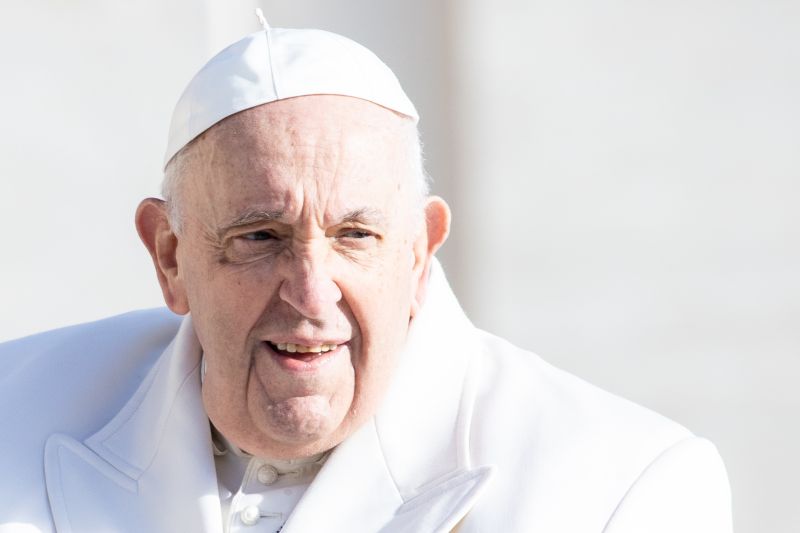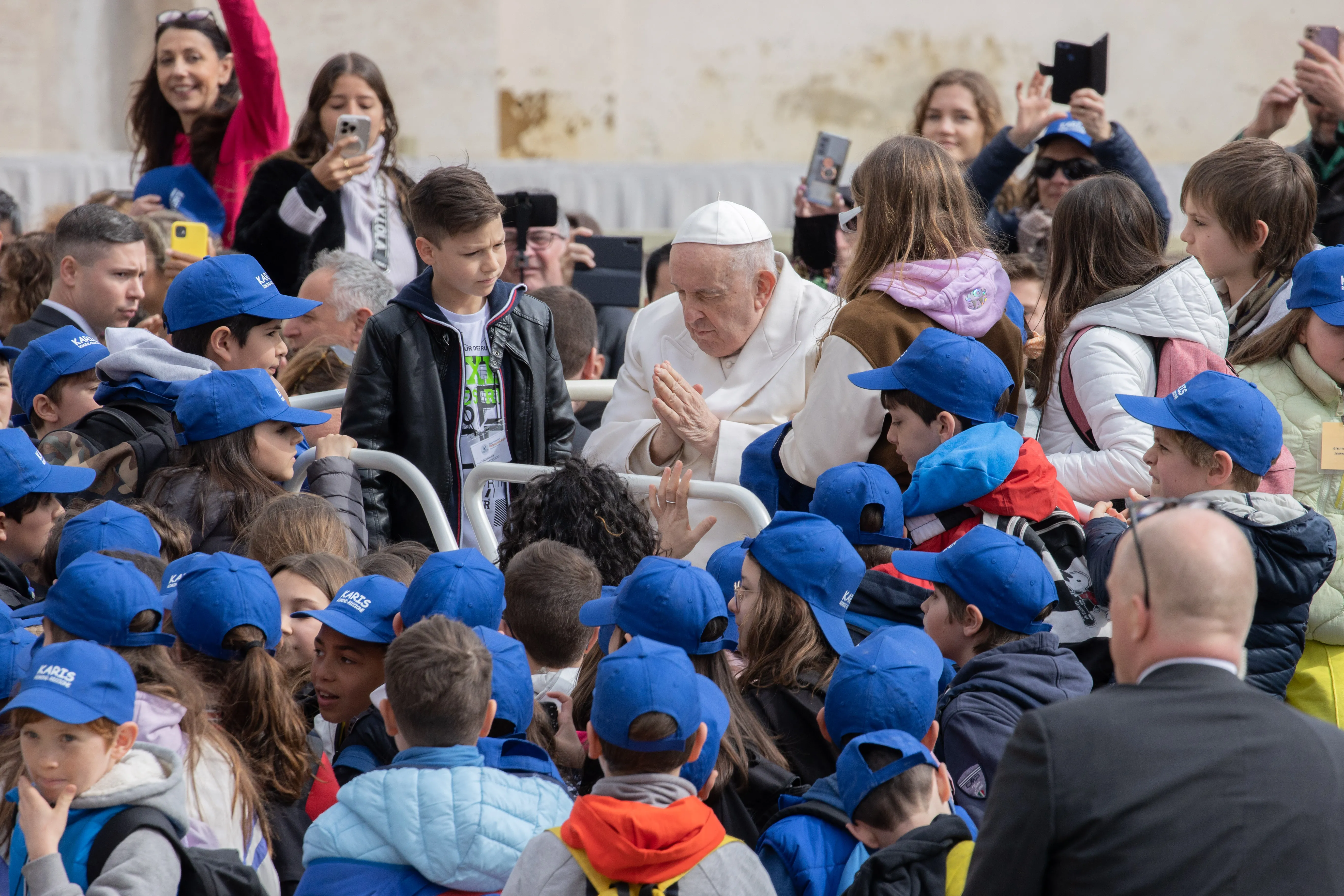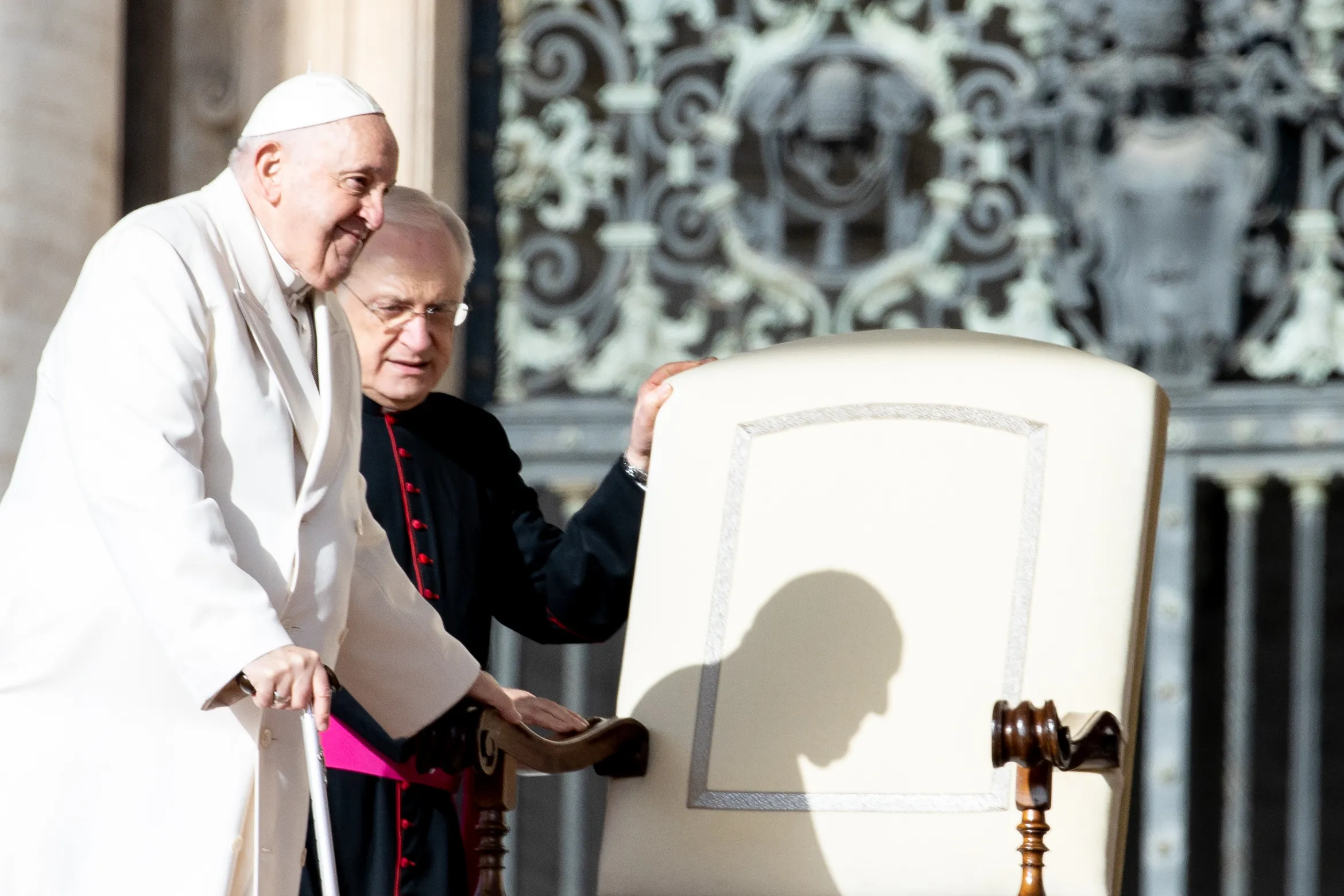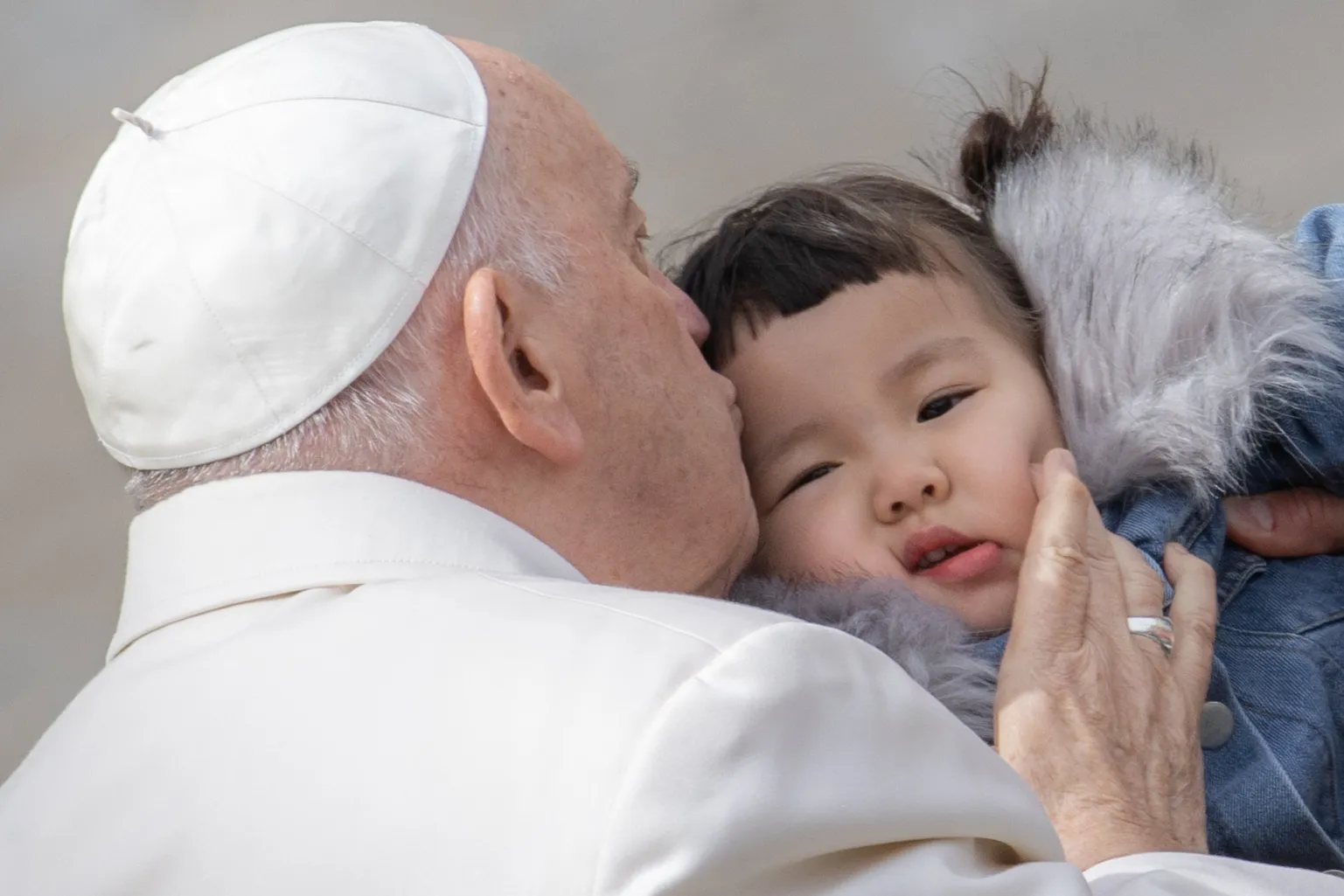
Cardinal Joseph Zen, the retired bishop of Hong Kong, has a poignant story in his new book, titled For Love of My People I Will Not Remain Silent: On the Situation of the Church in China. He says that one time when Pope Francis saw him in St. Peter’s Square, the pope imitated someone going into battle with a slingshot. The pope was basically saying that Cardinal Zen is unafraid to take on the Goliath of the Chinese state. Such an analogy is fitting for Cardinal Zen and it comes out strongly in his new book. Cardinal Zen is a fighter. He is also a teacher and a risk-taker.
Cardinal Joseph Zen, the retired bishop of Hong Kong, has a poignant story in his new book. He says that one time when Pope Francis saw him in St. Peter’s Square, the pope imitated someone going into battle with a slingshot. The pope was basically saying that Cardinal Zen is unafraid to take on the Goliath of the Chinese state. Such an analogy is fitting for Cardinal Zen and it comes out strongly in his new book. Cardinal Zen is a fighter. He is also a teacher and a risk-taker.
I have had the privilege of meeting Cardinal Zen three times. The first time was in the fall of 2006 when I was researching my book Church Militant: Cardinal Ignatius Kung and Catholic Resistance in Communist Shanghai (Harvard University Press, 2011). The second time was in the summer of 2010 when I met him with Anthony E. Clark—who has written extensively for Catholic World Report—after we had finished up a trip to Catholic communities in China. Finally, I had the opportunity to have breakfast with him again this past summer in Hong Kong and I spoke briefly with him on the phone this January during his US book tour.
Sometimes when interviewing people about the Church in China, it is hard to get good information because some engage in self-censorship or are overly cautious. You really need to ask the right question or read carefully between the lines. Not so with Cardinal Zen. He is generous with his time and forthright with his point of view.
The cardinal is a fighter. Even as a bishop Cardinal Zen distinguished himself by being a staunch advocate of the democracy movement both in mainland China and in Hong Kong. Cardinal Zen also spoke out on behalf of mainland Chinese immigrants in Hong Kong. He reminded the denizens of Hong Kong that many of them were children or grandchildren of immigrants from China. In his advocacy, he has treaded a careful line between the “official” Catholic communities that are recognized by the government—and basically managed by the Chinese Catholic Patriotic Association—and the “underground” communities that have remained faithful to Rome. In the years when many wrote off the “official” communities as schismatic, he felt he had implicit Vatican approval to teach in government-approved Sheshan seminary in Shanghai. Currently he has become an even stronger advocate of China’s underground communities, especially in the face of more intrusive state power. Most recently, Cardinal Zen has cast himself as the David taking on the powerful Chinese state, especially in regards to the recent “provisional agreement” between the Vatican and China.
His most recent book is a collection of eight lectures that Cardinal Zen gave in Hong Kong about Pope Benedict’s 2007 letter to Catholic Church in China. He discusses the background, the early drafts, the content, and the drama surrounding its formation, translation, and promulgation. In doing so, the book does more than describe the genesis of this letter. It also serves as a kind of primer on the state of the Catholic Church in China since at least the time of Pope John Paul II.
The book is not for the faint of heart. For—as any fighter—Cardinal Zen calls out his adversaries. He does this even if they are fellow cardinals. Some years ago cardinals could be reprimanded for attacking other cardinals, but this seems to be no longer the case. Forthright speech seems to be the order of the day. To this end, Cardinal Zen deeply questions the actions of Cardinal Pietro Parolin, the powerful Vatican Secretary of State.
Cardinal Zen says that when Pope Francis chose Cardinal Parolin as his Secretary of State, he was delighted at the choice of this “tested diplomat.” Only later did he come to see him as “arrogant and despotic,” someone who was more “interested more in diplomatic (worldly) success than in the triumph of the faith.” He faults him for many things including quietly ending the Vatican commission for the Church in China and engaging in sophistry that Zen believes even gives way to “willful lies.” (Cardinal Parolin was the main architect of the September 2018 provisional agreement between China and the Vatican, although it had not yet been signed when Cardinal Zen’s book was published.) There are other cardinals that Zen questions but he does not always mention them by name. However, it is often easy enough to figure out who they were by the dates they served in various offices. For example, the person that Cardinal Zen alludes to as not willing to meet with him during his three-day visit to Rome in late 2006 was Cardinal Ivan Dias who was the prefect of the Congregation of the Evangelization of Peoples at that time.
Cardinal Zen also questions some of the bishops in China. One of them is Francis An Shuxin, the auxiliary bishop of Baoding. He believes that it was because of erroneous advice and mixed messages from church leaders, that Bishop An ended up coming out of the underground church, joining the Patriotic Association and ultimately taking part in an illegitimate episcopal ordination. The cardinal basically asks how a “hero of the faith” could end up as a tool of the government. He holds that at least some of the blame lies with the Vatican.
These are church figures, but Cardinal Zen also does not hold his fire for Chinese functionaries. He assails Liu Bainian, a layman who is the power behind the throne of the Patriotic Association. He makes a case that Liu is also a high-ranking Communist Party member. For too long he has been given too much power over the life of this organ of the state. Even bishops seem to tremble in his presence. He blames some church leaders for allowing Liu Bainian to gain much prestige in the eyes of the government. They should have pushed back against this man long ago. Cardinal Zen knows that the Chinese government only understands power. Show weakness and they will attack; show strength and they are more cautious.
In the cardinal’s eyes this is the reason for the failure of Ostpolitik. This policy was used beginning in the late 1960s to engage Communist governments. The hope was that in not shutting off dialog, some Western governments could obtain concessions from their Communist counterparts. In attacking Ostpolitik Cardinal Zen shows that he is willing not only to question certain people but certain policies as well. Cardinal Zen says that when the West Germans dialogued with the East Germans, it was a success. But, alas, for the church, it was a “failure.”
The cardinal is a fighter but he is also a teacher. In fact, much of his book is a blow-by-blow account of how Pope Benedict’s letter of 2007 was put together.
For Cardinal Zen the letter itself was nothing less than a “masterpiece.” All of the ingredients were right. There was the intellectually gifted Pope Benedict who wrote much or it or at least read it carefully multiple times. (Pope Benedict was scrupulous in attaching his name only to documents that he had carefully vetted.) There was the relatively wide consultation with other church officials including Cardinal Zen who presented the pope with four pages of suggestions (almost all of them were adopted). There was also the careful deliberation in the final drafts to make sure that the letter would not offend certain Chinese sensibilities over national pride. Finally, there was the constant stream of real-life cases that helped to inform the letter and that the letter was designed to address. Given its breadth of vision, the end result was that the letter was not only relevant for the Church in China but also for the universal church. It broaches important themes such as the church-state relations, evangelization in the modern world, and the role of suffering in creating a purified church. Quoting from the book of Revelation, only the sacrificial lamb can open the seal and reveal the contents of the scroll and explain what might otherwise be seen as a senseless history.
However, in pulling back the curtain to see how the document was made, Cardinal Zen also shows us a darker side. Again, these sections in the book are not for the politically naïve. I am reminded of what Fr. Ronald Knox said about Rome. “He who travels in the Barque of Peter had better not look too closely into the engine room.”
Some may think that such church documents are generated entirely by the spirit from on high. The cardinal disabuses them of such a notion. In showing how flawed the process can be, he worries that he might engage in “gossip.” Yet, for the love of his people, the cardinal cannot remain silent. He is a teacher to the end. According to Cardinal Zen, the resultant problems with the letter did not have to do with the original document itself. (After all, the cardinal himself had given a lot of input.) Rather, the problems had to do with its translation into Chinese.
The cardinal addresses a number of small problems. But the major problem is with paragraph 7.8. The mistranslation and even “voluntary omission” of part of this paragraph has led to much harm. The issue is whether the “underground” communities can come out of hiding and join the official community. The cardinal says that usually there should be no problem with this as the church has the right to work in the open. It can do so as long as it does not “forsake the principles of our faith and the communion with the universal church…” The problem is that this is precisely what the Chinese government asks the Church to do “in not a few particular instances…indeed almost always.” However, these last three words were removed in the early translation of the letter. They were only re-inserted a year later. Cardinal Zen believes that this was a deliberate omission. According to him, someone in the Vatican wanted to encourage the underground communities to emerge and join the “official” communities. Perhaps some curial officials felt that there was no longer any point in having an underground church. But in showing us this omission, Cardinal Zen teaches us about the real-life impact this otherwise minor omission actually had on the ground in China. For it called into question the very reason for being of the underground church, a church that had suffered greatly.
Finally, Cardinal Zen is also a risk-taker. He took a risk in sending Pope Benedict four pages of notes for the original letter. He took a risk in writing a more accurate translation of the official Vatican version of the Chinese text. (It was done with some help over the space of three days.) He took a risk in writing an “aid” to the letter to help the faithful understand some points that the pope did not raise in the letter. He is also a risk-taker in writing his current book about Pope Benedict’s letter and more broadly about the current situation of the Church in China. Finally, he continues to take risks as one of the most vociferous critics of the recent “provisional agreement” between the Vatican and China.
As one might surmise, I have a great deal of respect and affection for Cardinal Zen and his courage in tackling some of the burning issues of the day. Despite his realism and his political sophistication, I cannot help but wonder if he was originally too trusting of fallible human beings, even if they work in the Vatican. He seems to have been unaware of the possibility of serious bureaucratic infighting and pushback. For example, early on he seemed to expect a rational outcome to all his interventions. He need only point out certain errors and they would be corrected. Case closed. But while the process of writing Pope Benedict’s letter was quite edifying, the translation and promulgation of the letter has turned out to be less so. The devil has been in the details.
Even granted that there was some level of malfeasance on the part of Vatican officials (and the cardinal makes a convincing case that there was), there seem to be two possibilities why this was so. (This goes for both the 2007 translation of Pope Benedict’s letter and 2018 “provisional agreement.”) The first possibility is more positive. Some Vatican officials might have wanted to avoid offending China in any way. After all, they are diplomats and diplomats tend to find more confrontational approaches to be unhelpful. Perhaps they are students of history who wonder what might have happened if the Vatican had not been so quick to denounce the Chinese Rites in the early eighteenth century. Now they are willing to make almost any deal with a very different China.
They might also be genuinely sympathetic to China, perhaps too sympathetic. Such a point of view is understandable. I myself have been fascinated by China since the time I was thirteen and witnessed Deng Xiaoping’s historic visit to the United States which was instrumental in his policy of economic reform and opening China up to the outside world. In the intervening forty years China has lifted hundreds of millions of its citizens out of poverty. This has certainly been no small feat. China is heir to thousands of years of history and culture. It now stands tall on the world stage. It is this China that the curial officials might have in mind when making decisions.
Yet there is also a darker view of why some Vatican officials might have made some of their decisions. Perhaps they have simply been seduced by the power of China or have an idealized view of life in China, without fully coming to grips with some of the problems its power engenders. Indeed, recently some Vatican officials have made some rather naïve comments about China.
To be aware of these problems is to step back and see the larger context. It is upsetting to know that parts of Pope Benedict’s letter to China were mistranslated or omitted. It is upsetting to know that the recent “provisional agreement” is far from perfect. Yet Vatican China policy is hardly the only place where there have been Vatican missteps. The cardinal need not take any of this so personally. Recently the Vatican seems flummoxed in how to deal with the re-emergence of the sexual abuse crisis. Further, the Vatican bank continues to be a mess. Should we then be surprised if its China policy is less than perfect? In this reading, Vatican China policy is one more sad story in a litany of such cases. The Church worldwide is going through trying times.
Let us give Cardinal Zen the final word. It comes from the end of his book and is both a hope and a caution:
Aren’t the gentlemen in the Vatican saying that the purpose of an agreement is to favor the evangelization of the great nation? Let them remember that Communist power is not eternal! If today they go along with the regime, tomorrow our Church will not be welcome for the rebuilding of the new China.
Cardinal Zen, a fighter, teacher, and risk-taker, indeed.
For Love of My People I Will Not Remain Silent: On the Situation of the Church in China
by Cardinal Joseph Zen
Ignatius Press, 2019
Paperback, 153 pagees
If you value the news and views Catholic World Report provides, please consider donating to support our efforts. Your contribution will help us continue to make CWR available to all readers worldwide for free, without a subscription. Thank you for your generosity!
Click here for more information on donating to CWR. Click here to sign up for our newsletter.








Please write to Cardinal Zen and our brothers and sisters in China. When Jesus comes, we will not need a temple because He will be with us in visible form. Look on Vatican website for Cardinal Zen’s address.
Joseph Cardinal Zen’s speech at the Truman-Reagan Medal of Freedom ceremony by the Victims of Communism Memorial Foundation —
https://oldyosef.hkdavc.com/?p=1147
For true prophets, silence is not always golden.
Thank you for this review of Cardinal Zen’s new book. May I request that Catholic World Report, and other sanctioned Vatcian publications, begin to carry more frequent articles from bitterwinter.org This resource is underrepresented in the press.
The writing and editing is not imperfect, yet with a bit of polish, the site is a good effort to publicize with first person accounts, testimonies and often photographs or video evidence the atrocities and persecutions taking place against our brothers and sisters in Christ in China.
Am certain Cardinal Zen might appreciate that. Christians are not the only persecuted religious groups in China and it seems there could be more interviews by critical Princes and Priestly classes of the Church on their own free volition, to cross populate research and debate with active media groups such as NTD News and Epoch Times.
This may increase audience across platforms, this is part of my social media specialies qualifications. I make free suggestions as quality test. These story lines from Bitter Winter may have increased power and reach to inform the public and laity beyond which Vatican News currently does. Yet it should. It is not disobedient to Jesus to reveal the truth to the Church.
Chairman Xi, is he defacto ruler over Rome now? I know that writer of The Population Bomb. Paul R Erlich. The Vatican appears to have poor advice from new age advisors. Kindly remedy it. Demand new advisors. Catholic ones.
Best regards,
Dan Costello Fan of Free Hong Kong and Taiwan and China.
Canadian trade dissident: Anti-Communist Trade Specialist.
Anti CCP China: Will not teach communist children anymore.